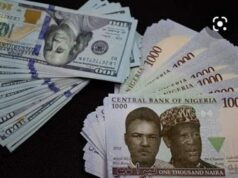The former governor of Anambra State, Peter Obi, says the increase of the Monetary Policy Rate (MPR) by the Central Bank of Nigeria (CBN) would further worsen the economic hardship in the country.
The Star had reported that the CBN increased the MPR by 400 basis points from 18.75 per cent to 22.75 per cent.
The CBN Governor, Yemi Cardoso, who chairs the Monetary Policy Committee (MPC), announced the committee’s decisions in Abuja on Tuesday, February 27, 2024.
However, Obi, in a statement on his X (formerly Twitter) account on Thursday, February 29, described the increment as counterproductive, saying it would lead to more job losses in the country.
The presidential candidate of the Labour Party (LP) in the 2023 election stated: “Let me confess that the label of being a vintage Onitsha-based trader does not in any way confer on me the status of an economic expert.
“With my vast trading knowledge and my involvement in the real sector, I am of the strong opinion that the recent decision of the Monetary Policy Committee to increase the Monetary Policy Rate, MPR, to 22.5% and the Cash Reserve Ratio, CRR, to 45% will further worsen the economic situation of most Nigerian households as it is bound to cause more job losses in the productive sector, especially manufacturing and other sectors that rely on bank loans and credit facilities for their funding needs.
CBN raises interest rate to 22.75%
“Tightening liquidity in the financial system does not improve productivity, ie food production, which is the major cause of inflation in Nigeria.
“Moreover, only about 12% of N3.6 trillion of the total money in circulation is in the banking system which means that 88%, about N3.2 trillion is outside the banking system.
“So, this measure would rather be counterproductive as it would not address the intended purpose of managing the money supply.
“These new measures will worsen the fragile economy as the supply of funds would dry up for the real sector, and the new MPR rate hike will push the interest rate on loans to above 30%, which would be very difficult for the real sector operators especially manufacturers and SMEs to repay; resulting, obviously, in increased bad loans, and worsening the nation’s economic situation.”
The former governor noted that the most critical way to manage Nigeria’s high inflation rate and decline in production is for the government to tackle insecurity in the country.
Obi said the address of insecurity by the government would allow increased food, crude oil production, and an overall increase in production, which would make products, especially food, cheaper.
Obi added: “This way we would increase our productivity as well as restore the confidence of FDIs and FPIs to come back to the country.
“I must caution that what the Nigerian economy needs now is hard-headed practical originality and results. Tinkering with classical economic theories can only deepen our crisis.”










